
TheClimateChanger
-
Posts
1,997 -
Joined
-
Last visited
Content Type
Profiles
Blogs
Forums
American Weather
Media Demo
Store
Gallery
Posts posted by TheClimateChanger
-
-
Personally, and I'm probably going to get flamed for this, but I think the data adjustments are insufficient and it's actually warmed considerably more than claimed by NOAA.
Just look at this map from NOAA for July 1901 - allegedly the warmest July on record in the State of Ohio (lol).
If you went on to the NCEI website and played around with this map, you would see it's almost identical to this hand-drawn map from the July 1901 monthly weather review. A few areas are shown as warmer on the hand-drawn map (southwest Ohio), but some areas are a bit cooler (west-central Ohio, parts of northern and eastern Ohio).
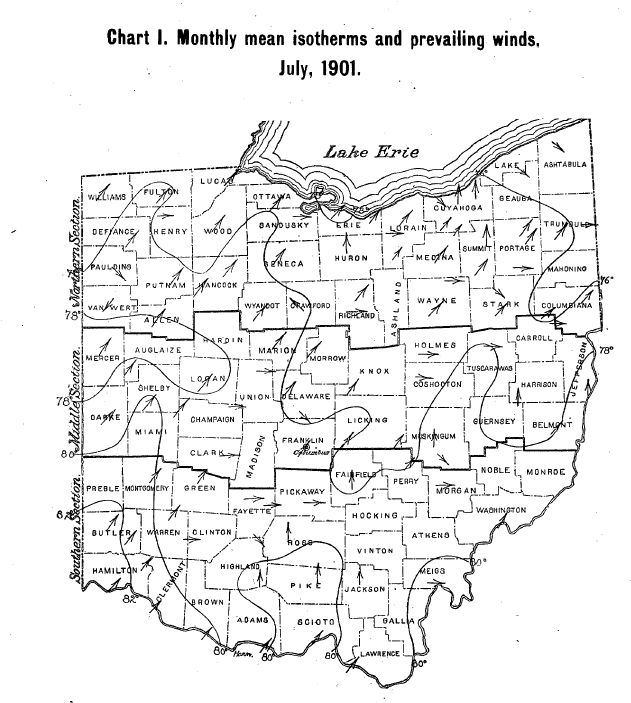
But where are the so-called adjustments? The month was reported as 78.1F in the monthly weather review. The official number today is 78.0F. There is essentially no adjustment for equipment bias (MMTS), no adjustment for substandard exposure, no adjustment for anything - the original calculated value is pretty much identical to what was reported. The adjustments are really only later on from the 20s/30s to 50s/60s for TOBS. Most of what is referred to as "adjustments" is just proper areal averaging of the mean temperature, including elevational effects.
The Weather Bureau offices almost exclusively collected temperature from rooftop exposures, now known to produce much warmer averages relative to a station sited over grass or sod. Yet, these locations are regularly beating 1901 using recent temperatures collected from an automated, fan-aspirated temperature sensor properly sited over grass or sod. Somehow 1901 is still hottest on record?
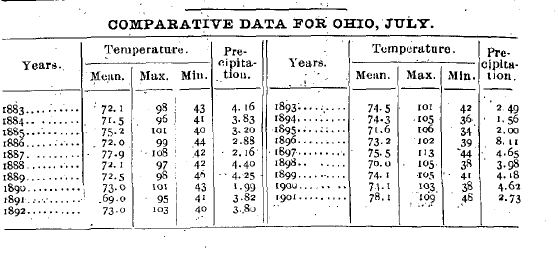
-
 1
1
-
-
-
5 minutes ago, TheClimateChanger said:
It has been as cold as 31F in East Lansing during July. On July 15, 1863, the high was 69F and low 31F. No maximum & minimum temperature records for southeast lower Michigan at that time, but likely was in the 30s.
More recently, and closer to southeast lower Michigan, the low was 40F on July 1, 1988 at Toledo. I would imagine some of the colder spots were in the upper 30s.
38F at Milan on 7/3/1988 & 39F at Hillsdale on 7/1/1988. State low that year was a chilly 28F at Kenton (western U.P.) on the 1st.
-
 1
1
-
-
20 hours ago, michsnowfreak said:
Today will likely set a new monthly maximum, as the record is 70 in 2017/1999.
Fun fact- the only month to not hit 70 is January. The warmest temperature is 67° on Jan 25, 1950, however many areas registered over 70 that day, including 72 at Ann Arbor. I suspect present day DTW would have as well. On the flip side, the only month not to have a temperature in the 30s is july, all time low being 42 on July 6, 1972. So theoretically, it is possible, though extremely unlikely, for someone in Southeast Michigan to be as cold as the 30s or as warm as the 70s any month of the year.
It has been as cold as 31F in East Lansing during July. On July 15, 1863, the high was 69F and low 31F. No maximum & minimum temperature records for southeast lower Michigan at that time, but likely was in the 30s.
More recently, and closer to southeast lower Michigan, the low was 40F on July 1, 1988 at Toledo. I would imagine some of the colder spots were in the upper 30s.
-
 2
2
-
-
3 minutes ago, TheClimateChanger said:
Looking at the Michigan state record high for the month of February...
Isolated data pre-1888, although the data we do have covers some of the warmer southern climes.
February 27, 1867: 64F at Lansing [incredibly the low was 14F] --> possibly erroneous, 1930 publication indicates high of 66F on 2/22 was 4F warmer than any other February day of record in East Lansing dating to 1863 [original data unavailable]
February 19, 1884: 64F at Detroit [tied]
February 4, 1890: 66F at Benton Harbor
February 21, 1930: 69F at Monroe
February 26, 1944: 70F at Monroe and Wayne
Not sure thereafter. Per climatologist Maximiliano Herrera, the state record prior to yesterday was 72F, although I'm not sure where or when that occurred. I thought maybe 2017, but the maximum was 70F at seven different stations on the 24th.
They stopped including these nifty little tables in the monthly and annual reviews, making it a bit difficult to identify state records without the source data.
Ah, here it is. I noticed DTW reached 70 in February 1999, so I figured that was it. Confirmed.
February 11, 1999: 72F, at Battle Creek
February 12, 1999: 72F, at Three Rivers and Holland
-
 1
1
-
-
Looking at the Michigan state record high for the month of February...
Isolated data pre-1888, although the data we do have covers some of the warmer southern climes.
February 27, 1867: 64F at Lansing [incredibly the low was 14F] --> possibly erroneous, 1930 publication indicates high of 66F on 2/22 was 4F warmer than any other February day of record in East Lansing dating to 1863 [original data unavailable]
February 19, 1884: 64F at Detroit [tied]
February 4, 1890: 66F at Benton Harbor
February 21, 1930: 69F at Monroe
February 26, 1944: 70F at Monroe and Wayne
Not sure thereafter. Per climatologist Maximiliano Herrera, the state record prior to yesterday was 72F, although I'm not sure where or when that occurred. I thought maybe 2017, but the maximum was 70F at seven different stations on the 24th.
They stopped including these nifty little tables in the monthly and annual reviews, making it a bit difficult to identify state records without the source data.
-
-
-
Crazy to see statewide monthly records beaten by 3-5F.
-
Highest hourly temperatures for February and winter season at Detroit (1942-present).


-
6 hours ago, LibertyBell said:
Oh you're going by average temperature, which includes the minimum. For summer heat, I go by number of 90 degree days and number of 100 degree days, not average temperatures.
When the min is high it means it's usually either cloudy or very humid or both and when it's more humid during the day and of course when it's cloudy, the temperature rises more slowly.
Mean temperature is the superior measure IMO. Number of 90 and 100 degree days can be influenced by drought. They claim July 1936 is hottest month on record in U.S., although I'm a little skeptical of that. It doesn't seem very hot compared to recent Julys in the Great Lakes or Northeast. In fact, outside of a 7-day period, the other 24 days at most locations would be bona fide summer of yesteryear territory.
But even in Des Moines, where it's hottest on record. If you look at the humidity levels that summer [lowest on record], the heat indices would have been around the air temperature or lower most days. So a lot of those days - 106F, 108F - you have a 103F or 105F heat index. Yet Des Moines gets dewpoints in the upper 70s and 80s every year now, with heat indices into the 110s [even 120F]. So I would argue the combination of heat and humidity that we regularly see today is more deadly than even the worst heat waves of the Dust Bowl. Most of the country would be uninhabitable today without AC. This isn't reflected in the data, particularly if you only looked at the temperatures.
-
 1
1
-
-
Impressive lightning with this cluster of storms. High of 68 each of the last two days IMBY.
-
1 minute ago, LibertyBell said:
It could be, but I've also noticed the temperatures rise a lot more quickly when there's a drought. The last notable drought I remember was in 2002, which was a very hot summer, starting with that big three day heatwave in April, the grass was yellow to brown all summer.
Maybe, I'm skeptical of some of those readings. If you look at Bradford, in rural Pennsylvania, surrounded by the Allegheny National Forest [so no UHI impacts], pretty much every recent summer is the hottest on record. So I don't know why there would be such a disconnect between the rural and heavily populated parts of the northeast. Wouldn't the UHI effect argue for the exact opposite impact? It's almost like the greenhouse effect ameliorates some of the UHI effect by making radiational cooling less effective in more remote areas.
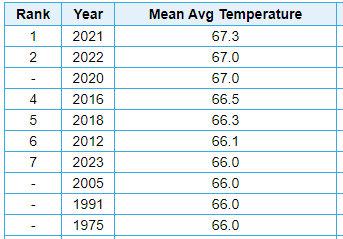
-
1 minute ago, beavis1729 said:
Make that 77F at Rockford - just ridiculous. Normal high is 38F.
Insane, breaks the monthly & seasonal record prior to yesterday by 7F.
-
3 minutes ago, LibertyBell said:
1993 was eventually superseded by 2010 which became our new hottest summer on record, but we haven't had as many 90 degree days since then-- although we did have a peak heat hotter in 2011. I don't see that being broken any time soon because we simply get too much rain in the summer now to match that kind of heat. We need a drought here to get over 100.
Yeah, the bias on the HO-83 was primarily daytime only. I think there were some hot summers in that era, no doubt. But the first order station data for years like 1987, 1988, 1991, 1993, 1994 & 1995 is probably a couple degrees too high for daily maxima, relative to the current readings with the HO-1088 ASOS hygrothermometer [which was reconfigured to address the issues with the HO-83].
I mean it's probably too warm even in the cold, volcanic summer of 1992. I'm just pointing out the multiple warmer years from that era.
-
 1
1
-
-
1 minute ago, LibertyBell said:
Do you remember the summer of 1993, it was our hottest summer on record up to that point. We all had numerous days above 100+, JFK had 2 in a row from what I remember, NYC had 3 in a row and EWR had 5 in a row. The 90s were the decade that had our most 90 degree days and also our most 100 degree days-- the summers of 1991, 1993, 1995 and 1999 were all extremely hot.
Not as hot as today. Take those readings with a grain of salt [except for 1999]. Maximum temperatures at first order stations averaged about 0.5C too warm, and from 1 to as much as 3C on sunny days with light winds - i.e., typical summertime weather.
-
8 hours ago, LibertyBell said:
But those places are always hot lol-- in 1993 Newark had 9 days of 100 degrees or higher (including 5 days in a row!)-- has that ever been matched?
I think we can finally call it a new climate when the coast gets temperatures every year over 100 degrees-- do you think we'll have that by 2050? I want JFK to get at least one high every year over 100 degrees.
I think if we measured temperatures the same way we used to, we would have 100F+ temperatures every summer. They had to shut down the original Baltimore station because it was so hot. The same station that is the official records from Baltimore before BWI opened. Somehow the deniers argue this shows the warming is fake. Obviously, it actually shows how ridiculous the warming has been when properly observed temperatures today are now exceeding the past ones taken in an absurdly warmed local microclimate on a rooftop. What level of cognitive dissonance is that?
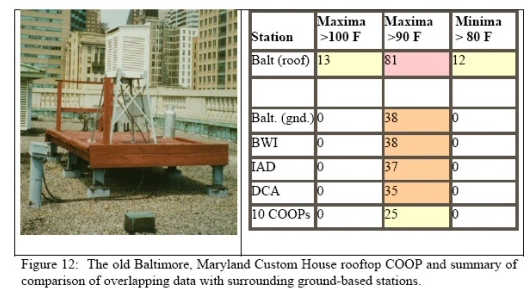
-
7 hours ago, LibertyBell said:
But those places are always hot lol-- in 1993 Newark had 9 days of 100 degrees or higher (including 5 days in a row!)-- has that ever been matched?
I think we can finally call it a new climate when the coast gets temperatures every year over 100 degrees-- do you think we'll have that by 2050? I want JFK to get at least one high every year over 100 degrees.
What a joke - why do they allow obviously bogus readings to stay in the record books? I'm guessing that was the HO-83? Should at least have an asterisk designating its questionable nature.
-
66 in Houghton Lake, Michigan, breaks the prior monthly record of 64F (1930) & seasonal record of 64F (2/1930 & 12/2001).
The temperature at Sault Ste. Marie, Michigan has ticked up to 50F since that last observation. That value ties the February monthly high of 50F, set on February 16, 1921. Nowhere near the seasonal record though. Due to the lake effect, the warmest temperatures occur in early December.
65F at Green Bay ties the monthly record from 2/22/2017 & ties the seasonal record from 2/22/2017 & 12/16/2021. Some nearby airports registering 70F.
-
A nice 69F at Madison, Wisconsin, breaking the prior monthly record of 68F set on February 22, 2017, and breaking the prior seasonal record of 68F set on February 22, 2017 & December 16, 2021. Yesterday's high of 67F came up one degree short of those values.
-
68 in LaCrosse beats the prior monthly record of 67F set yesterday, and beats the prior seasonal record of 67F set yesterday and on December 5, 1998.
-
Up to 71F at Milwaukee, tying the monthly and seasonal record high from 2/22/2017. Excellent palm growing weather for our Wisconsin enthusiasts.
-
Rockford up to 75F, easily breaking the monthly and seasonal record high of 73F set yesterday (and obliterating the previous high water mark of 70F).
-
Moline up to 77F, breaking the monthly and seasonal record high set yesterday.

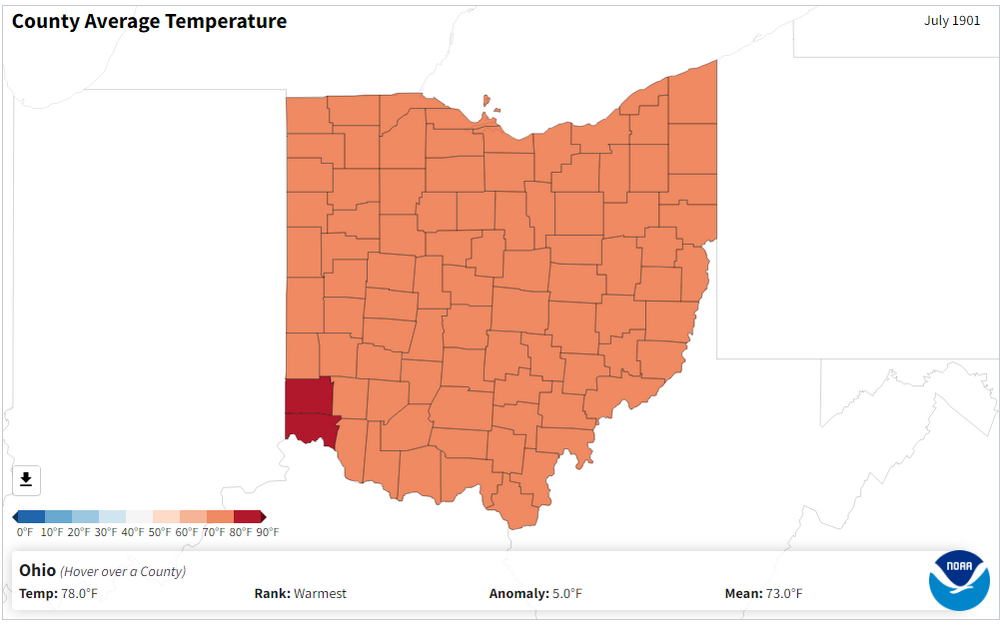
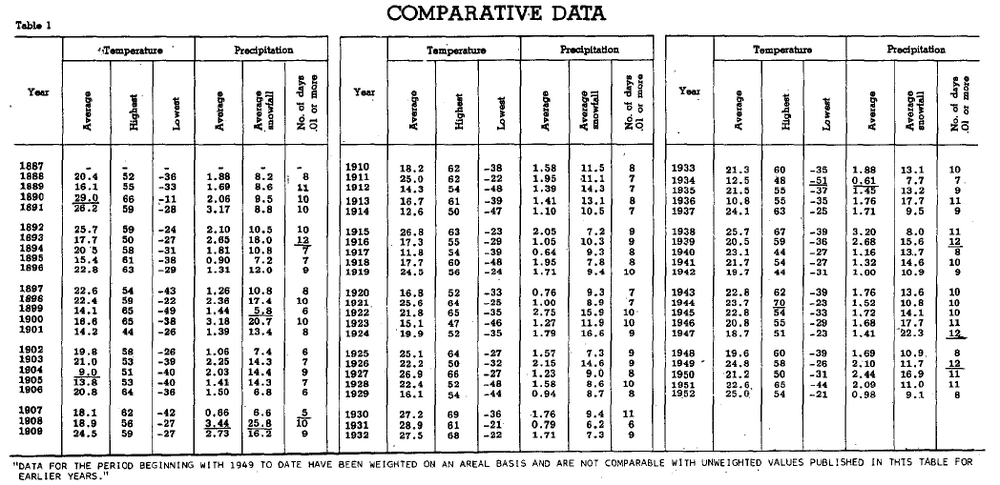
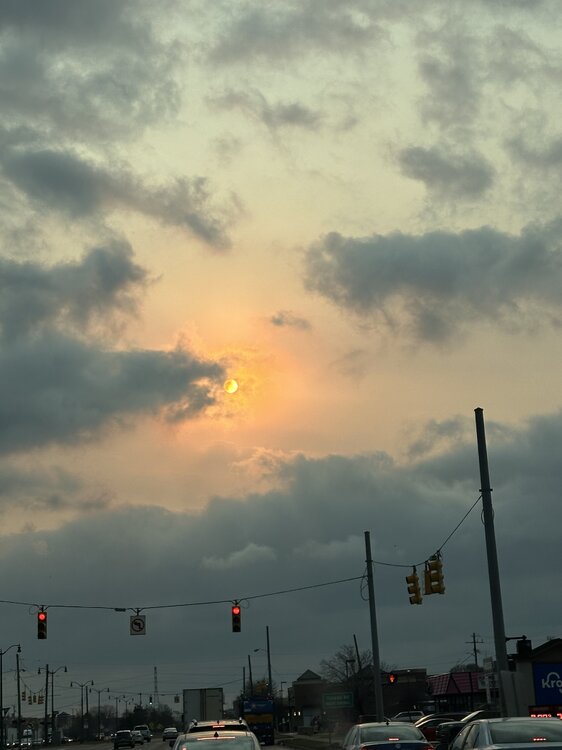
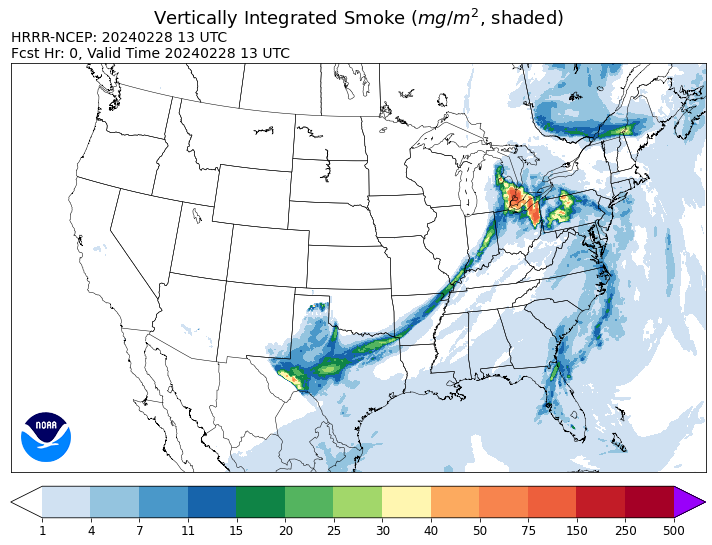


Post observation adjustments - appropriate?
in Climate Change
Posted
But let's evaluate some of these temperatures. Cuyahoga County is said to have been 77.2F, per NCEI. Yet the downtown city station [on a rooftop exposure!] had a mean of 76.2F. Why in the world is the county average a degree higher than what common sense would dictate is the warmest spot in the county? Same thing with Summit County. Akron is 76.7F that month, yet NCEI has Summit County at 76.8F for a county-wide average. Complete nonsense.
Despite being tied for 8th warmest in the Akron-Canton area threaded record and tied for 11th warmest in the Cleveland threaded record - these being high-quality, first-order sites [including Weather Bureau data] - NCEI has 1901 as warmest on record in Cuyahoga, Summit and Stark Counties, in Ohio. Again, this is complete nonsense, and there is ZERO chance that 1901 is actually the warmest July in Ohio.